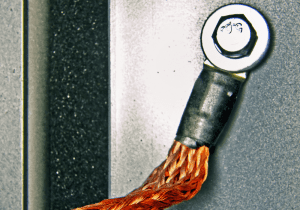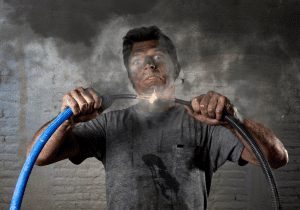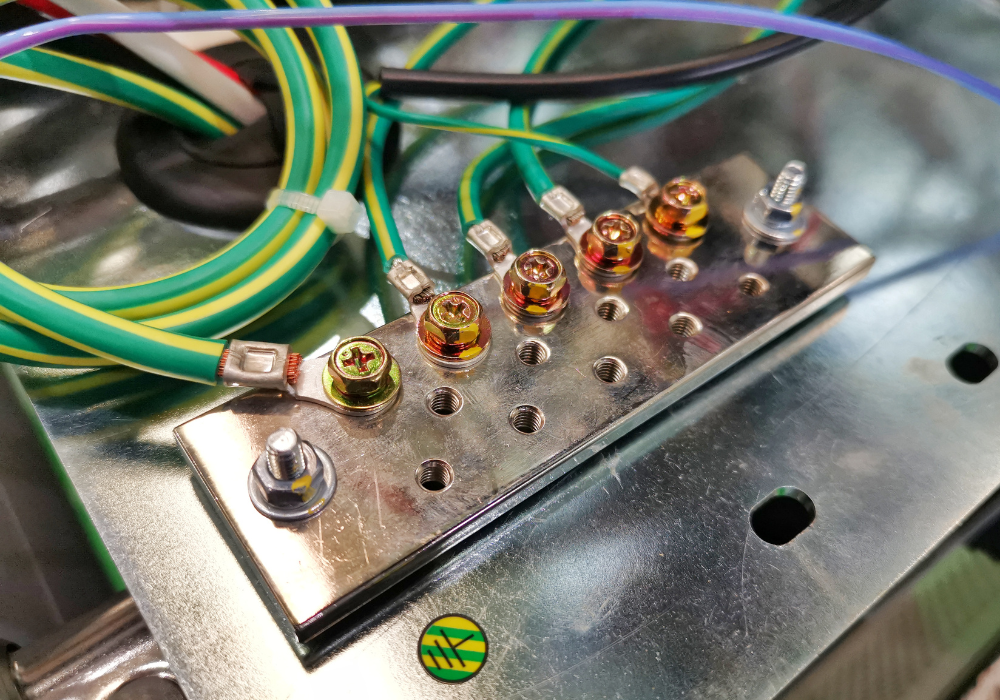Electrical safety is a crucial aspect of home maintenance that often goes overlooked. While most homeowners are familiar with basic electrical components like outlets and circuit breakers, the concept of grounding remains a mystery to many. Understanding grounding can significantly enhance your home’s safety, prevent electrical hazards, and ensure peace of mind. This blog post will demystify grounding, explain its importance, and provide practical tips for homeowners.
What is Grounding in Electrical Systems?
 Understanding the Basics of Grounding
Understanding the Basics of Grounding
Grounding is the process of creating a pathway for electric current to flow safely into the ground. It acts as a safety mechanism that protects both your home and its occupants from electrical shocks and fires. When an electrical fault occurs, grounding provides a direct route for the excess current, preventing it from causing harm.
Components Involved in Grounding
A typical grounding system includes a grounding rod, grounding wire, and grounding electrode. The grounding rod, usually made of copper or galvanized steel, is driven deep into the earth. The grounding wire connects this rod to your home’s electrical panel, ensuring that any stray voltage is safely directed into the ground.
How Grounding Complements Your Electrical System
Grounding works in tandem with other safety features like circuit breakers and fuses. While these components protect against overcurrent, grounding provides an additional layer of safety by managing excess voltage. Together, they create a robust safety net that shields your home from electrical mishaps.
Why Grounding is Essential for Electrical Safety
Preventing Electrical Shocks
One of the primary benefits of grounding is the prevention of electrical shocks. In the absence of proper grounding, even a minor fault can lead to severe shocks, posing a significant risk to you and your family. Grounding ensures that any stray voltage is immediately redirected into the earth, keeping you safe.
Reducing the Risk of Electrical Fires
Electrical fires are often caused by faulty wiring or overloaded circuits. Grounding plays a vital role in minimizing this risk by providing a safe pathway for excess current. This reduces the likelihood of electrical arcs or sparks, which can ignite flammable materials and cause fires.
Protecting Electrical Appliances
Proper grounding also protects your electrical appliances from damage. When an electrical fault occurs, the excess current can travel through your appliances, potentially causing irreparable damage. Grounding channels this current away from your appliances, ensuring their longevity and reliability.
Signs of Inadequate Grounding or Electrical Problems
Frequent Electrical Surges
If you experience frequent electrical surges, it could be a sign of inadequate grounding. Surges occur when there is a sudden spike in voltage, which can damage your appliances and electrical system. Proper grounding helps to absorb these surges, preventing potential harm.
Flickering Lights
Flickering lights are another common indicator of grounding issues. While occasional flickering may be due to a loose bulb or minor fault, persistent flickering suggests a more serious problem. It could indicate that your electrical system is struggling to manage the voltage flow, necessitating a thorough inspection.
Electric Shocks from Appliances
Experiencing electric shocks when touching appliances is a clear sign of grounding problems. This occurs when there is excess voltage in the system, which is not being safely directed into the ground. Immediate action is required to rectify this issue and ensure your safety.
DIY vs Professional Grounding Inspections and Upgrades
 Assessing the Risks of DIY Electrical Work
Assessing the Risks of DIY Electrical Work
While DIY projects can be rewarding, electrical work is best left to professionals. Improper handling of electrical components can lead to serious accidents, including electric shocks and fires. DIY grounding inspections and upgrades carry significant risks and should be approached with caution.
Benefits of Professional Inspections
Professional electricians have the expertise and tools to conduct thorough grounding inspections. They can identify potential issues, assess the adequacy of your current grounding system, and recommend necessary upgrades. Their knowledge ensures that all work complies with electrical codes and standards, providing peace of mind.
When to Call a Professional
Certain situations necessitate immediate professional intervention. If you notice frequent electrical surges, flickering lights, or experience electric shocks, it’s time to call a professional. Additionally, if your home is older and hasn’t had an electrical inspection in years, a professional assessment is crucial to ensure safety.
The Role of Electrical Codes and Standards in Grounding
Understanding Electrical Codes
Electrical codes are regulations that govern the installation and maintenance of electrical systems. These codes ensure that all electrical work meets safety standards, protecting both property and its occupants. Grounding requirements are a critical aspect of these codes.
Importance of Compliance
Compliance with electrical codes is not just a legal requirement but a safety imperative. Proper grounding ensures that your home’s electrical system is safe, reducing the risk of accidents and ensuring that all electrical components function correctly. Non-compliance can result in severe consequences, including fines and an increased risk of electrical hazards.
How Professionals Ensure Compliance
Professional electricians are well-versed in electrical codes and standards. They ensure that all work, including grounding inspections and upgrades, complies with these regulations. Their expertise guarantees that your home’s electrical system is up to code, providing optimal safety and performance.
Tips for Maintaining a Safe Electrical System at Home
Regular Inspections
Regular electrical inspections are vital for maintaining a safe system. Schedule professional inspections at least once every few years, or more frequently if you notice any signs of electrical problems. These inspections help identify potential issues before they escalate, ensuring ongoing safety.
Avoid Overloading Circuits
Overloading circuits is a common cause of electrical problems. Avoid plugging too many appliances into a single outlet or circuit. Use power strips with surge protection to manage multiple devices and distribute the load evenly across different circuits.
Install Surge Protectors
Surge protectors are an excellent way to safeguard your appliances and electrical system. They absorb excess voltage during electrical surges, preventing damage to your devices. Install surge protectors on all major appliances and consider whole-house surge protection for comprehensive safety.
Grounding is a fundamental aspect of electrical safety that every homeowner should understand. It protects against electrical shocks, reduces the risk of fires, and ensures the longevity of your appliances. Regular inspections and adherence to electrical codes are essential for maintaining a safe and efficient electrical system. Take the first step towards a safer home today and experience the peace of mind that comes with a well-grounded electrical system.

